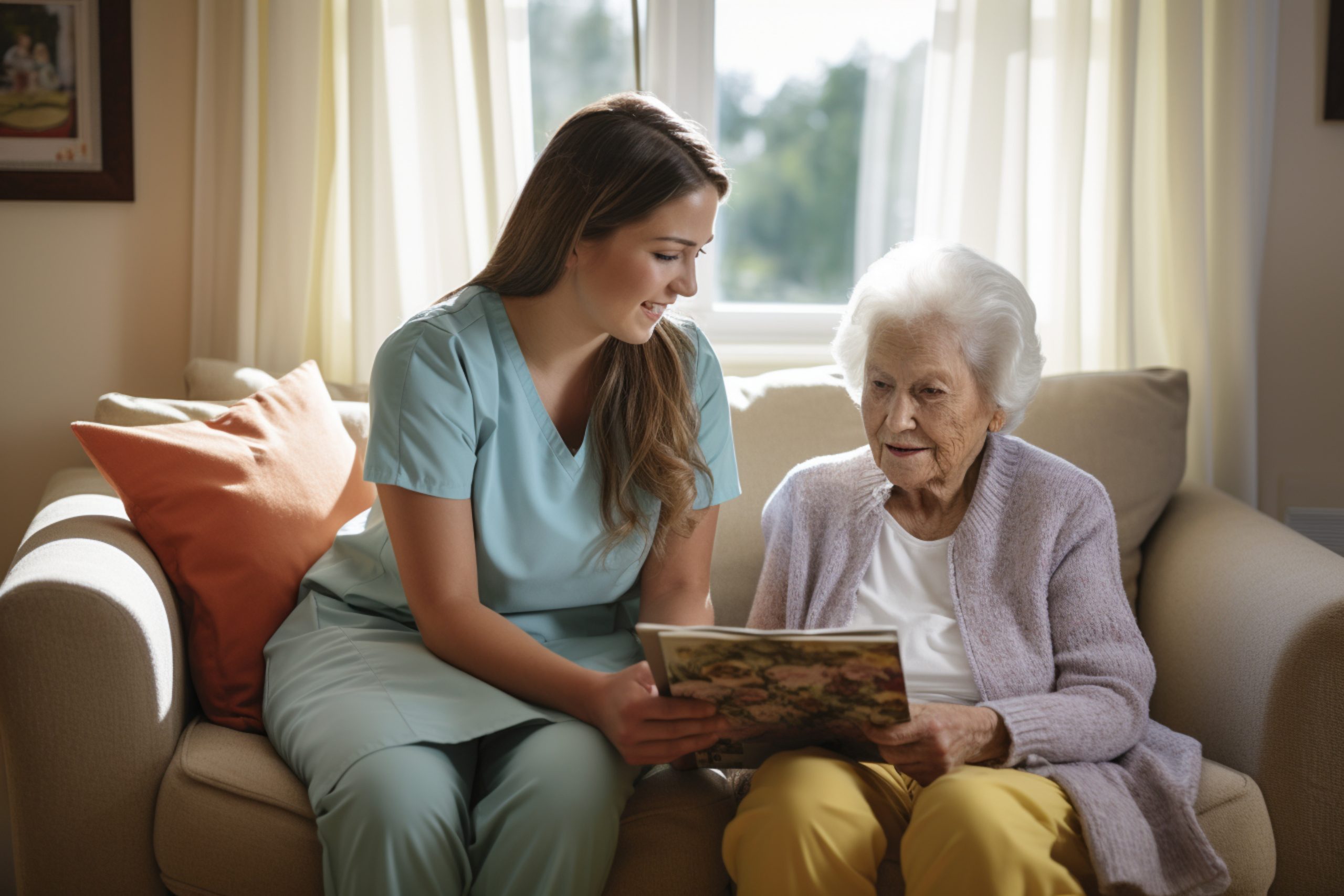Doris was an independent, take-charge individual, who prided herself on her self-sufficiency. A tireless worker, she was regarded in her community and at church as a resourceful person who got things done. Still, life had dealt her a tough hand, having lost her only daughter to breast cancer and then her husband to lung cancer. Then came her own diagnosis of Alzheimer’s disease.
Following the diagnosis, Doris slowly pulled back. Though she enjoyed it, she stopped volunteering at the library. Church attendance became more erratic. Doris’s niece and her husband, the only family living nearby, took on increasing caregiving responsibilities for her. They came to realize that while Doris had liked serving and being busy, making friends had not been one of Doris’s priorities. Her eyes lit up when someone called or stopped by, but outside of her niece, that became increasingly rare.
Socialization can help delay or even prevent the onset of dementia
While it’s impossible to know the cause of Doris’s dementia, a study published by The American Journal of Public Health involving more than 2000 older women might provide a clue. Researchers found that among these ladies, none of whom had dementia at the beginning of the study, those with larger social networks and daily social contact had a substantially lower risk of dementia. The AARP, agrees, “Many scientists now believe that social interaction is key to maintaining good mental health and warding off diseases like dementia and Alzheimer’s.” It’s never too late to expand your social network. Friends made later in life can be some of your closest friends! Who would have thought friendships could be thought of as a dementia treatment?
Socialization helps ease dementia symptoms

- Having more friendships reduces the likelihood that individuals with Alzheimer’s will suffer memory loss. As reported in that AARP article, (for) “people with larger social networks, the changes of Alzheimer’s are much less likely to result in memory loss than those with smaller social networks.”
- Increased socialization can reduce levels of agitation and aggression among Alzheimer’s sufferers. That was one of the findings in a trial involving more than 800 elderly people with dementia published in Science Daily. They found “social interactions can have a significant impact on the well-being of people with dementia.”
- Socialization also helps reduce cognitive decline. Another study published by Cambridge University reported cognitive decline was reduced by an average of 70% for those with frequent social activity as compared to people with infrequent social activity.
Tips on social interaction as a dementia treatment
Simply increasing time spent with friends and family has been shown to have positive effects as a dementia treatment. Plus, there are things you can do to optimize these social interactions.
- Consider the calendar. Try to spread out get-togethers for your loved one with dementia, rather than having multiple visitors simultaneously or even back-to-back, which can be overwhelming. Additionally, avoid scheduling visits on busy days, such as when there are other events or outings on the calendar.
- Consider the clock. Is your loved one just not a “morning person”, or experience sundowning’s challenging effects around dusk? Plan visits when your loved one is likely to be at their best.
- Consider the conditions. Planning to meet up in a public place? From other conversations to loud TVs, unwelcome noise can be agitating. How about lighting and temperature control? We naturally gravitate towards sunny spaces and comfortable temps. And, if you’re planning an outdoor get-together, what options do you have if the weather doesn’t cooperate?
What to do
Keying in on things your loved one likes to do makes companionship, as a dementia treatment, more likely to succeed. While lots of people thrive on conversation, some just want to spend time listening to music or watching a movie together, and others prefer joint activities. Choosing something they enjoy will encourage engagement.
- Conversation can be life-giving, but can also be challenging for an individual whose dementia has progressed and has trouble staying with a conversation or verbalizing their thoughts. Try to speak calmly and maintain eye contact, especially if there are others in the room.
- Playing games can be great. From card games to Bingo, many games activate thinking skills. They’re also fun, and having fun is powerful in and of itself. And in case you haven’t seen them, there are large print and oversized playing cards for individuals with vision loss. This is also why Sunlight has presented our Seniors Rule Trivia! games more than 50 times at senior centers and senior living communities. Even people with short-term memory loss have been successful with trivia related to their childhoods.
- Create a playlist of their favorite music. Most people deeply connect with “their” music. Favorite songs…favorite artists…these can bring back cherished memories. Online music services will also suggest similar artists of similar timeframes. Have fun playing some of those songs and see which ones your loved one reacts to.
- Peruse photo albums. Many seniors have a lifetime of photos, each with its own story. Some may even have videos they may not have looked at for a long time and would love to relive those moments and share part of their life story.
- Go for a walk. Exercise can slow the onset of Alzheimer’s and offers numerous other benefits for those with dementia. Would your loved one enjoy a walk if invited to do so? This can also help curb their urge to wander.
We can help
 Increased socialization is a proven dementia treatment. As the daughter of one of our elderly clients with dementia told us, “Mom’s memory has improved so much with your (Caregiver) visits.” She went on to explain that she noticed her mother was recalling more and that those memories were fuller and richer, with more detail. There was even an old working jukebox in the home. Playing those old favorite “45s” brought back numerous memories and lots of smiles and laughter.
Increased socialization is a proven dementia treatment. As the daughter of one of our elderly clients with dementia told us, “Mom’s memory has improved so much with your (Caregiver) visits.” She went on to explain that she noticed her mother was recalling more and that those memories were fuller and richer, with more detail. There was even an old working jukebox in the home. Playing those old favorite “45s” brought back numerous memories and lots of smiles and laughter.
For those living alone, a Caregiver can be that socialization lifeline. Friendship naturally forms with time spent together, and as the research shows, just having someone to talk to and interact with can help ward off dementia, as senior loneliness brings a 50% greater likelihood of dementia. As well, senior loneliness plays a devastating role in numerous other health risks.
Companionship is an essential aspect of caring for others. At Sunlight, we aim to foster a positive environment for each of our clients, and by extension, their families. Several of our clients with dementia are fortunate to have family as their primary Caregivers. Sunlight Caregivers become part of those clients’ care teams, providing the family Caregivers the breaks they need.






